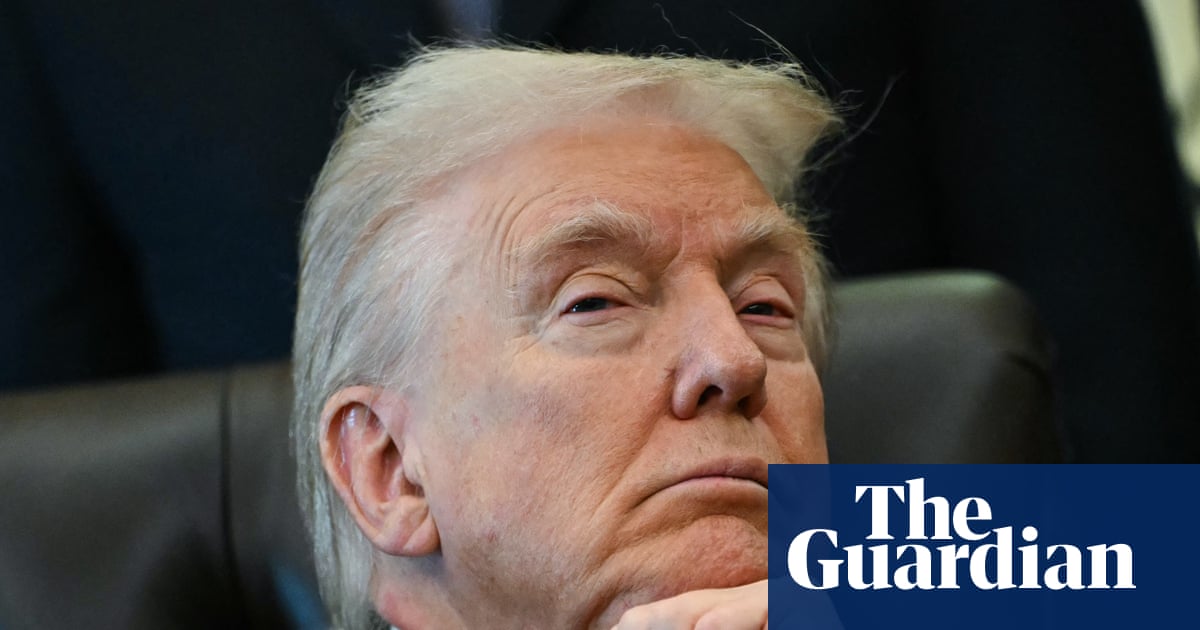In 1955, the American columnist William F Buckley Jr declared that a conservative is someone “who stands athwart history, yelling ‘Stop’.” But today’s conservatives are not only trying to resist the advance of history, they are attempting to pull the train of history backwards and reopen the case on what constitutes a democratic society.
Last month, the Smithsonian’s secretary received a letter from the Trump administration announcing that all exhibits deemed “divisive” or “ideological” should be replaced with those labelled “historical” and “constructive”. Within days, a list of offending displays was published and, unsurprisingly, they overwhelmingly targeted artefacts that highlight Black, Latino and LGBTQ+ experiences in the American story.
At first glance, it might seem absurd for a president juggling a global trade war caused by his avalanche of tariffs, domestic economic chaos caused by his “big beautiful bill” and intractable conflicts in Gaza and Ukraine to be fretting over museum artefacts. But these attacks are not just distractions from the major issues; they provide the ideological justification for real material and legislative changes that will impact people’s day-to-day lives.
The Trump administration does not only turn to hot-button culture wars because they know they will capture the media’s attention; they use these conversations as the narrative doorway through which laws can be passed that erode rights for poor and vulnerable communities across the board. This happened when the furore over diversity, equity and inclusion (DEI) resulted in a set of executive orders that terminated all DEI and accessibility initiatives within federal agencies and contractors, leading to the closure of racial equity programmes and offices that monitored sexual harassment issues, and the targeting of disability rights compliance and outreach programmes to economically disadvantaged communities.
We see the same strategy from Washington to Westminster, where the populist right is also on the rise. At last year’s general election, Reform UK called for sweeping changes to how British history is taught, demanding a “patriotic” and “balanced” approach that counters the increased interest in British imperialism and the transatlantic slave trade that has arisen in the aftermath of the global Black Lives Matter uprising. While Reform presents this call to reverse the curriculum as neutral, it works to rewrite the narrative on Britain into an “island story”.
In this framing, Britain transforms from being a centuries-long, globe-spanning empire into a besieged little island, with the influx of migrants being an inexplicable modern plague rather than the aftershock of imperial entanglement. Local protests outside temporary accommodation for asylum seekers can be portrayed as spontaneous community defence, being pushed forward by “genuinely concerned families”. This narrowing of the national story clears the way for Nigel Farage’s vision of Britain, with a flagship immigration policy of “mass deportations” of asylum seekers. The Reform leader told Channel 4 that “we cannot be responsible for all the world’s sins”.
The dismantling of democracy and the rewriting of the nation’s story go together like salt and pepper in the populist right’s recipe book. When it talks of pushing back against the decolonisation of the curriculum, it is also seeking to erase the memory of the mid-20th century, when, in purely juridical terms, we saw the greatest democratic expansion in human history. Millions of people across the world who hadn’t ever had a say in choosing their own leaders suddenly received the right to vote. To forget this is to forget that democracy was fought for globally. It is not an automatic birthright that is given out of kindness from the powerful to the weak.

This is the lesson of decolonisation struggles and racial justice activism that the populist right is seeking to bury under the sands of time. When Trump’s team rail against DEI, they are not just talking about getting rid of monotonous unconscious bias training. They mean getting rid of the 1964 Civil Rights Act. There is a larger ambition at work: to unpick the social contract that underpinned the liberal order of the 20th century, and the juridical architecture that reinforced it.
The libertarian polemicist and ideological godfather of today’s populist conservatives, Murray Rothbard, said in 1992: “We shall repeal the 20th century.” The slogan has become a rallying cry for those who seek to demolish the framework of race relations law, women’s rights, worker protections, and the democratic mechanisms that provide a protective casing within which vulnerable people can live with dignity.
Pushing back against this project means refusing the divide and rule tactics on which the populist right relies. It requires building cross-communal solidarities that recognise the shared stakes between those targeted by racialised narratives and those facing economic dispossession. The same politicians willing to strip a refugee of due process will also strip a worker of union rights. The same people working to erase the history of empire are the ones who will hollow out any institutions of mass democracy that could mount a challenge against spiralling inequality.
Civil rights in the US and decolonisation in the UK weren’t just about race. Read the work of Kwame Nkrumah, Walter Rodney or Fred Hampton and it is clear that these movements were driven by concerns for housing, healthcare, dignified work. If we want to defend the wins of the 20th century, we can’t let history be rewritten in the 21st.
-
Dr Kojo Koram teaches at the School of Law at Birkbeck, University of London, and writes on issues of law, race and empire. He is the author of Uncommon Wealth: Britain and the Aftermath of Empire

 2 months ago
44
2 months ago
44

















































